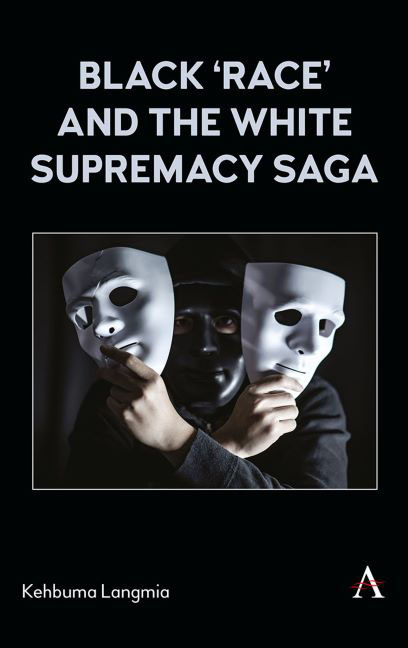Book contents
- Frontmatter
- Dedication
- Contents
- Foreword
- Acknowledgments
- 1 The Shifting Sands on the Feet of Black People
- 2 Shadow of Colonialism and Slavery on Black People
- 3 Black People and COVID-19
- 4 Africans and Mass Immigration
- 5 Blacks and the Politics of Demo-“Crazy” and Development
- 6 Victimhood and the Identity Crisis: Blacks and the Epistemology of Freedom
- 7 Black Status and Physical Threats
- 8 The Epistemology of Black Poverty, Resistance, and Resilience
- 9 The Politics of Europe/China Dependency on Africa
- 10 False Western Epistemological Dominance
- References
- Index
1 - The Shifting Sands on the Feet of Black People
Published online by Cambridge University Press: 13 April 2024
- Frontmatter
- Dedication
- Contents
- Foreword
- Acknowledgments
- 1 The Shifting Sands on the Feet of Black People
- 2 Shadow of Colonialism and Slavery on Black People
- 3 Black People and COVID-19
- 4 Africans and Mass Immigration
- 5 Blacks and the Politics of Demo-“Crazy” and Development
- 6 Victimhood and the Identity Crisis: Blacks and the Epistemology of Freedom
- 7 Black Status and Physical Threats
- 8 The Epistemology of Black Poverty, Resistance, and Resilience
- 9 The Politics of Europe/China Dependency on Africa
- 10 False Western Epistemological Dominance
- References
- Index
Summary
If the map of Africa is not redrawn by the African Union, Africa will never be “free”. If this is not done, any discussion relating to the African Renaissance is merely hogwash. The ghosts of King Leopold of Belgium and his European cohorts, who spread the map of Africa on a table in Berlin in 1884 to divide the territories among themselves as if they were sharing a cake, is still haunting the African people and all people of African descent till date. There were no Africans present at this meeting. It was a deliberate attempt to ignore them, as they were not even considered for a “guess pass” at the meeting. That ghosts have followed all Black people as a shadow as they navigate and will continue to navigate the slippery slope of being human, or better yet, “sub-human” in the perceptual lenses of their imperialists. It was not only the map of the continent that was on fire in Berlin, but the people also living on this mother continent were not considered citizens; they were apes, i.e., semi-humans. True enough, after the broken mirrored independence of most artificial African countries, there were some attempts to right the wrongs of the Berlin 1884–1885 decision. Countries like Upper Volta changed their names to Burkina Faso; Rhodesia to Zimbabwe; the Gold Coast to Ghana, etc., but that has not seemingly translated into anything close to Africanization of the mindset of their citizens till date (Ngugi, 2009, Rabaka, 2010, Nyamnjoh, 2012, Asante, 2015). This exercise has all been seen as putting lipstick on the pig's nose. The main African powerful “house”, the African Union, an offshoot of the Organization of African Unity (OAU), has no plans for the Africanization of the entire continent (Langmia, 2016, Marah, 2017). Molefi Kete Asante is reputed to have said that African nations decided to seek individual nationhood on the wrong lines (Asante, 2007 a &b). This is because they failed to follow in the footsteps of Kwame Nkrumah of Ghana who, in 1957 when Ghana became one of the few African nations to gain independence from British colonial rule said that his country’s independence would be meaningless unless it is tied with independence of the African continent to what he referred to as the United States of Africa”.
- Type
- Chapter
- Information
- Black 'Race' and the White Supremacy Saga , pp. 1 - 24Publisher: Anthem PressPrint publication year: 2024

